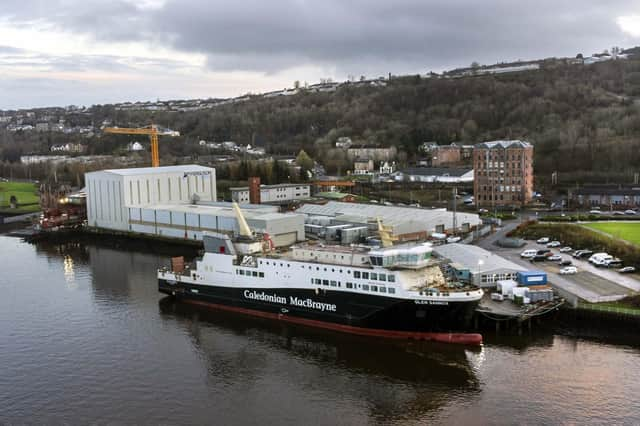Despite Edinburgh tram inquiry farce, SNP ministers must not escape judgement of ferry inquiry – Brian Wilson


The “swift and thorough” inquiry promised by Alex Salmond duly turned into another farce. We are told proudly that three million documents were submitted. Poor Andrew Hardie is now aged 76 and did not expect to spend the autumn of his years ground down in this endeavour.
However, beware the reasoning touted in some quarters. Steer well clear of public inquiries, it runs, because they will always turn out like the Edinburgh trams. Keep it in-house and let Holyrood committees investigate.
Advertisement
Hide AdAdvertisement
Hide AdThat device helped head off a judge-led inquiry into the Salmond affair, including the role of his successor and senior civil servants. The alternative was a deeply partisan Holyrood committee, with a majority slavishly loyal to the very people who had most to answer for.
If the Edinburgh trams provide a warning about what can go wrong with an independent inquiry, then Nicola Sturgeon’s spectacular act of escapology provides an equally strong reminder of what happens when a forensic investigation of serious matters is left to politicians and the interests they serve.
If there is no third way, then Scotland will never find out much about anything within the political lifetimes of the elite who should be held accountable – which is an extremely convenient conclusion for those with much to hide. “There’s nane ever feared that the truth should be heard, but they whom the truth would indict” and all that. Meanwhile, nobody ever resigns.
The most obvious parallel to the Edinburgh trams is the outrageous state of Caledonian MacBrayne as a result of decisions taken by the Scottish Government; notably but far from exclusively, how the order for two ferries came to placed with the Ferguson yard in Port Glasgow.
Edinburgh’s trams cost double the original estimate and arrived four years late. On the credit side, the system is now functioning and would generally be regarded as an asset, albeit one that cost far too much to deliver.
As for the Ferguson order, the costs will be at least treble the original estimate and delivery is already five years late. Prima facie, the case for a public inquiry is therefore already stronger than it was for the trams while the ferries charge sheet is far from complete.
This week alone, there were suggestions, which I understand to be well-founded, of further delays and even higher costs. Meanwhile, the Auditor General, Stephen Boyle, told Holyrood magazine that the interests of “people who live, work and socialise on these islands were disregarded”. Mr Boyle added: “Taxpayers’ money has financed projects that are many times over budget and many years late."
There are three Holyrood committees looking at the ferry scandal while the Scottish Government sub-contracted to their fee-hungry friends at Ernst & Young the task of telling them what to do about west coast ferry services. That report was delivered in February and is still being sat on.
Advertisement
Hide AdAdvertisement
Hide AdBack at the sharp end, CalMac’s timetables from next month cannot be confirmed because only yesterday the Scottish Government finally agreed to delay closure of Uig pier on Skye to install a linkspan for a ferry that doesn’t exist. The same issues will now recur in January!
Where are the families and businesses faced with this uncertainty, on top of everything else visited upon them over many months, supposed to seek answers? The Auditor General? Ernst & Young? SNP-dominated committees?
A critical difference between Edinburgh trams and CalMac is that when Salmond set up his inquiry, he assumed blame would fall on the previous administration. With CalMac, there is only one regime for the spotlight to fall on – and those who should resign are still very much with us.
That explains why an independent inquiry will be denied and also why it is essential. “Disregarded” island communities deserve answers, even if it takes a few years to get them, for there is neither guarantee nor likelihood of normal service any time soon, such has been the depth of disregard.
Comments
Want to join the conversation? Please or to comment on this article.

